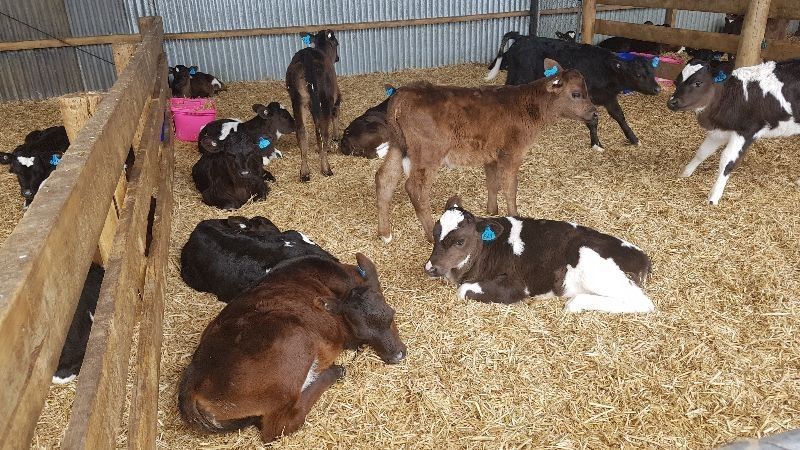Markets
Animal Bedding
A traditional market for Miscanthus internationally is as bedding for livestock, particularly for high quality horse, sheep, and poultry bedding. Dust is extracted during manufacture of horse bedding.
Miscanthus can last 8-12 weeks with only removal of the droppings needed with no turning and minimal spot top-up. The savings in labour are considerable.

Miscanthus has shown itself internationally to be considerably better than any alternatives in this use. In addition, there has been recent information coming from the UK that shows that when dairy cows are housed on Miscanthus bedding, the incidence of mastitis is significantly reduced. In New Zealand, Miscanthus is an excellent bedding material for dairy cow composting barns.
Boiler Fuel
The market in New Zealand as boiler fuel is rapidly developing.
The bulk market internationally – is as feedstock for boilers for producing energy in place of burning coal.
Miscanthus can been pressed into wood pellets or
40mm x 40 mm cubes so that it is densified for transport. This also allows the Miscanthus to be handled by feedstock handling systems that were designed for lumpy coal. It is anticipated that this market will open rapidly.

Plant Mulch
Miscanthus mulch is very effective, boosts earthworm populations, and can be organically certified containing no weeds or seeds.
Renewable Diesel
Miscanthus can be used to produce renewable diesel – a drop-in fuel that meets the New Zealand diesel fuel specifications. The renewable diesel technology also permanently sequesters about 15% of the biomass as high-quality biochar, a valuable co product.
Other Markets
Other markets for Miscanthus exist apart from that for the energy market.
Lincoln University has shown that Miscanthus can be effective in providing shelter and increasing biodiversity on farms. It does not impede travelling irrigators. The shelter increases downwind grass production. Miscanthus increases the soils organic matter significantly.
The deep root system of Miscanthus can also allow it to access deeper water or even the water table – helpful during droughts.
Miscanthus stands have been shown to reduce annual nitrogen leaching to less than 0.5 kg/ha even when irrigated with dairy factory effluent.
New markets continue to develop, and it is possible that in the future, transport fuels such as ethanol and even hydrogen may be produced from biomass crops such as Miscanthus.

